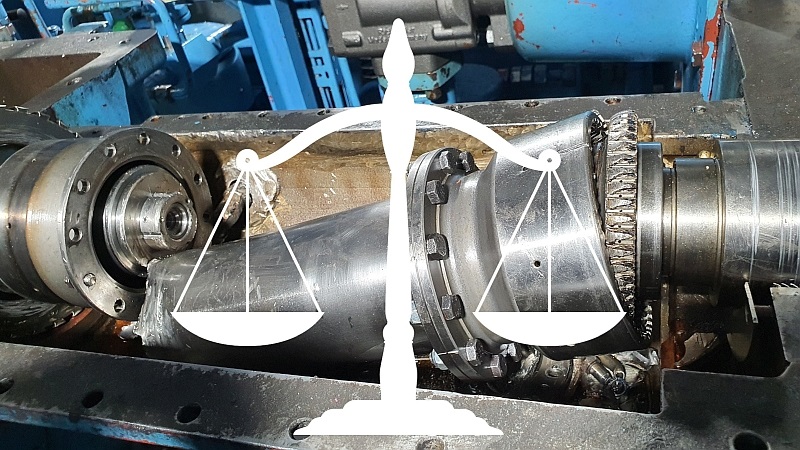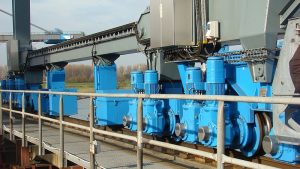What is this article about?
In a technical legal dispute, mechanical engineering companies can face numerous challenges. It is not only important to understand and navigate the legal aspects, but also to bring in technical expertise in order to successfully win the case. But how do companies manage to keep the upper hand in such legal disputes?
In this article I present how mechanical engineering companies can win technical legal disputes. Competent, publicly appointed and sworn experts with forensic and judicial know-how as well as professional lawyers with experience are the key to success on the party’s side in court. Key strategies and steps are presented. I also discuss proven tactics that companies can use to strengthen their position and emerge successfully from a technical dispute.
Find out how you can win legal disputes in mechanical engineering and prevail if the worst comes to the worst. You will receive suggestions for successfully mastering technical legal disputes. How can you reduce risks? You will find out in the article.
What are the most common reasons for technical litigation in mechanical engineering?
There are a variety of reasons why technical disputes can arise in commercial companies, industry and mechanical engineering. One of the most common reasons is that the mechanical engineering company as a manufacturer is accused by the buyer or operator of the machine being defective and therefore first has to defend itself in a regional court. In such cases, it is important that the company has the necessary expertise to refute the allegations and prove its own innocence. If a legal dispute arises, both parties want to win the legal dispute.
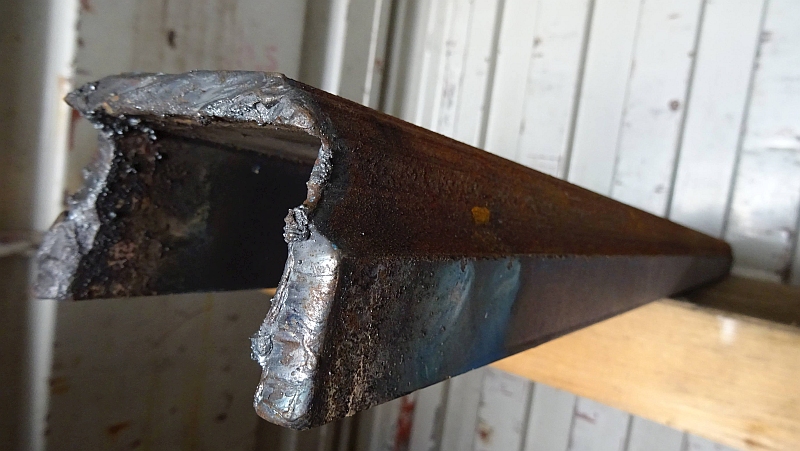
Image 1: When companies are in legal dispute: An example from the case discussed in Section 5.
Another case that often occurs is that the machine operator complains because the
Machine does not meet the agreed requirements.
Here it is crucial that the company knows the exact requirements and can prove that the machine meets the agreed specifications. In such cases, technical experts can play a valuable role in clarifying the situation and strengthening the company’s position.
Examples can be found in Section 5 with Figure 2 and Figure 3.
There are three important cases to distinguish: Win a legal dispute, but how?
Before going into the details, three essential cases must be distinguished.
Why do machine suppliers and machine operators meet in court in a technical legal dispute?
Manufacturers of machines are very often sued by buyers, who usually become operators, based on the following allegations:
- The machine does not comply with the agreements.
- There are:
- design errors or development errors,
- Material defect,
- The machine does not correspond to the state of the art in mechanical engineering.
- Due to the defective machine, consequential damage occurred.
- Particularly in the case of personal injury, the accusation is that the machine is not safe.
Case 1: Is the mechanical engineering litigation worth it?
A very crucial question arises right from the start, regardless of whether you, as a mechanical engineering company, want to sue yourself, should or want to defend yourself. The question is:
Is the legal dispute worth it for manufacturing companies / mechanical engineering companies with the risk of litigation costs given the costs and time?
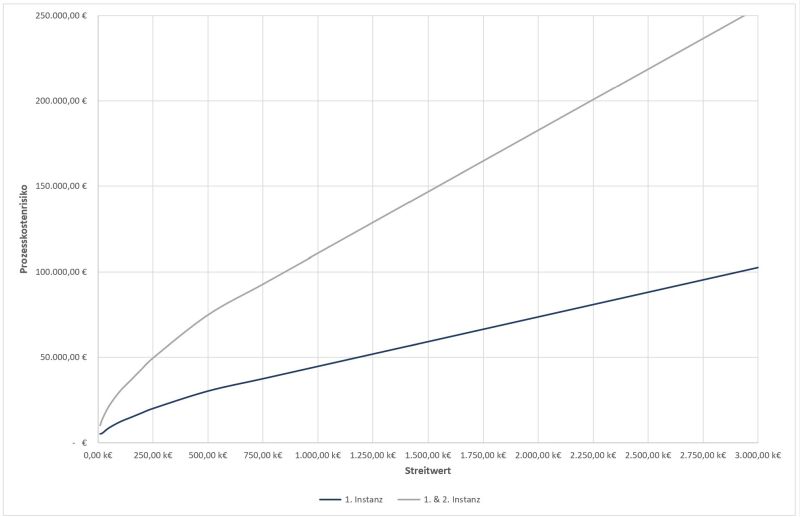
Figure 1: Approximate litigation cost risk depending on the amount in dispute.
Every company must first decide for itself whether it wants to go this route. If the dispute is low, I always recommend making concessions and seeking a settlement. You always have to see this in the light of the fact that such a solution also saves time and the problem is then solved.
As the management of a company, you can also win if you are at
supposedly low amounts in dispute do not even enter into the dispute.
Each management of a mechanical engineering company must define the scale for themselves.
If a solution is possible for 10% of the value in dispute, I would always recommend this approach. But that’s just my personal opinion.
Case 2: The defense against allegations (of the defective machine)
Once the lawsuit is served, you at least know what the subject of the dispute is. In this respect, as a defendant company, you are on the defensive from the start and have to defend yourself.
In mechanical engineering legal disputes, in 99.9% of cases this means that legal action is taken in the first instance before the regional court. So there is a requirement to have a lawyer.
The first and often very decisive question for the further course of action as a defendant mechanical engineering company is:
Which lawyer or lawyers do we engage to represent our legal interests?
This can be a groundbreaking decision early on. I will come back to this later in the article and explain this in more detail.
Case 3: The lawsuit because something “doesn’t fit” with the machine
When a mechanical engineering company or a manufacturing company files a lawsuit against the manufacturer or supplier of a machine in court, it has already chosen a lawyer.
One of the decisive decisions has already been made before the relevant regional court is called: the choice of lawyer.
However, there is another aspect that is of fundamental importance if you, as a plaintiff, want to win a technical legal dispute in the field of mechanical engineering or regarding any defective machines. In my experience it is
of fundamental importance,
external technical
Experts who know their craft and are very familiar with the legal environment should be involved right from the start.
I will come back to this later in the article and explain this in more detail.
How do manufacturing companies increase their chances of winning a technical dispute in court?
Setting up a qualified team of experts is important for “Case 2” and “Case 3” if you want to successfully enforce the lawsuit or, as a defendant mechanical engineering company, want to maintain a high chance of fending off a lawsuit or at least settling relatively well if there are good technical and legal ones There should have been reasons for the lawsuit.
In any case, I recommend taking into account:
- The strength and the key to success lie in peace. Actionism almost always achieves “nothing” in such technical and legal disputes.
- Involve technical experts right from the start if you want to increase the chance of not losing the argument in court.
- Choose lawyers and experts so that they can work well together and, most importantly
- are very experienced.
- Do not expect that good lawyers, who increase the chances of shaping the case positively in the interest of the mechanical engineering company (“client”) in an excellent team of lawyers and experts, work in accordance with the Lawyers’ Remuneration Act. All cases in which I have acted as a publicly appointed and sworn expert on the side of a party in a legal dispute have ended well for the client. This was only ever possible because a team of experts worked closely together. In my experience, these costs are worth it for the client.
Role of professional technical experts
An important approach to winning technical legal disputes in mechanical engineering is to involve technical experts and, in particular, publicly appointed and sworn experts at an early stage.
Publicly appointed and sworn experts are commissioned by courts through their work
-
- very familiar with the processes involved in a legal dispute.
- You also know the problems of imprecise evidence decisions and
- know what is important in the party’s mandate for manufacturing companies, commercial enterprises and mechanical engineering companies.
What do experts do on the client’s side?
The only difference at the beginning of the activity as an expert and thus “party expert” on the client’s side is whether the client is being sued under “Case 2” or whether the client intends to sue under “Case 3”.
In the further course, the work of the party expert between “Case 2” and “Case 3” is almost identical. What does that mean?
Preparation of the lawsuit according to “Case 3”
In reality, in the vast majority of cases, company management has already hired a lawyer or several lawyers before they come up with the idea of involving a party expert. However, this should be done early.
Clients have discovered any problems or errors with the machine or technical system. Otherwise they wouldn’t even think about filing a lawsuit. The problems that the client sees must be cross-checked from a technical perspective. This is necessary to ensure that
- the technical problems actually exist,
- ideally are reproducible and
- represent a deviation from the agreements made.
That’s why a professional expert will always check exactly what in the first step
was actually technically agreed and what was delivered.
This is an important technical test.
Furthermore, the further problems that the client sees are examined neutrally. It may happen that “seen problems” cannot be confirmed either. It is therefore important that in such a case no points are included in the court’s order of evidence that would become a boomerang for the plaintiff or applicant in the evidentiary proceedings.
These are essential points that a publicly appointed and sworn person
Expert with court experience
checked.
Finally, a party report is written. In this party report, the technical problems found and, if necessary, further errors are substantiated and, ideally, also proven. Such an opinion can be introduced into the process by the party’s lawyer.
If such a party report has been prepared by a professional expert, it is always one
good instructions for the court expert,
no time,
in order to wait for technical issues to be clarified in court in an independent evidentiary procedure or a legal dispute before production can be started again.
When preparing a lawsuit, the party report from a publicly appointed and sworn expert can, provided the appropriate competence, do the following:
- The party report is prepared neutrally, independently and objectively.
- It is a party presentation in court and also serves to guide the later appointed court expert.
- The amount of damage can already be determined.
- The party avoids discussing unnecessary, unprofitable or perhaps even points that could go in the wrong direction for the party in the proceedings.
The technical expertise and experience in the forensic investigation of technical problems make professional publicly appointed and sworn experts valuable partners for companies that want to win a technical legal dispute.
What bad documentation can do in a lawsuit will be explained later in the article.
Defense against a lawsuit under “Case 2”
If you, as a party expert, are advising the client in the defense against a lawsuit, you must first read the statement of claim or, in independent evidentiary proceedings, the application.
Experienced experts from the legal environment can then identify where problems of a technical nature might await the client.
In collaboration with the party lawyers, a so-called
technical-legal strategic planning
carried out.
The party will examine how the situation should be assessed technically and, of course, legally. This can lead to
- the willingness to compare increases or that
- you go into deeper technical detail in order to best defend yourself against the lawsuit.
As a party expert you can
Technically strengthen the evidence and help the company successfully defend its position in court.
Basically in legal disputes as a party expert for companies
If the commercial company from industry or mechanical engineering is already in legal dispute with a technical problem (machines, systems, etc.), a technical party expert is always required
- read the lawyers’ written submissions and provide the shared client’s lawyer with relevant information
- which areas your client is vulnerable to,
- which technical facts are presented incorrectly and/or imprecisely by the other side,
- which next technical points need to be discussed or presented again in more detail.
- The court report of the court expert in the legal dispute is read and technically examined down to the deepest detail.
- Technical contradictions are sought and, if found, explained in detail.
- Any errors are identified.
- Advantages and disadvantages that arise from the court report for one’s own client are worked out in technical detail in order to respond appropriately in the party’s lawyer’s next written statement to the responsible regional court or higher regional court.
- The corresponding written statement on the court opinion to the regional court or higher regional court is coordinated in close consultation with the party lawyer.
- The upcoming court hearing with the questioning of the court expert is being prepared.
- During the hearing, the court expert is asked directly by the party expert about his technical findings in the court report to explain his court report. This ensures that the important technical points are actually discussed.
The close cooperation of a functioning team of technical experts and lawyers on the client’s side also ensures that
essential technical issues in the legal dispute are also heard and are not neglected or even ignored due to “communication problems” between the different technical disciplines of those involved.
Collaboration with legal experts (lawyers) in the field of mechanical engineering
In addition to technical experts, it is a matter of course in court that the affected company also works with legal experts. In fact, there is no other way.
There are very few lawyers who specialize in mechanical engineering litigation. If any, you will find very few in the area of machine safety.
However, I know from my own experience that there are excellent lawyers from really good law firms. Therefore:
A professional team of experts on the party’s side offers a good chance of making a legal dispute positive for the client.
One thing must be taken into account at this point:
Lawyers are experts in the law and not in the specific technical issue that is at stake in a mechanical engineering dispute in court. That is why it is always important for the good lawyers appointed, even in legal disputes with special disciplines, that they
technical experts at your side know
the
- be able to understand and classify the technical issues,
- are experienced in dealing with legal disputes in court and
thus the
Be able to establish a connection between the legal and technical issues of the case.
In very close cooperation between the technical expert, often a publicly appointed and sworn expert, and the legal expert, the lawyer, the following are developed together on behalf of the party:
- Examination of the opposing party’s pleadings,
- Formulating your own evidentiary questions for the court’s evidence decision,
internal assessment of the opportunities and risks of the specific process. In very close coordination, this becomes the so-called
technical-legal strategic planning
derived.
Communication and transparency
Open communication and transparency are important on the part of a party in order to resolve the legal dispute in the client’s favor if possible.
This means without any ifs and buts:
If your own client has the proverbial “corpses in the closet” somewhere, then lawyers and experts on the party side need to know this.
This is an essential requirement that fundamentally influences the outcome of legal disputes in mechanical engineering. Conversely, this means:
Through close cooperation between the client’s technical employees, experts and lawyers on the client’s side, there is a very high probability that all legal and technical aspects will be taken into account and, as a result, any legal problems will be avoided and in any case significantly reduced.
Experience as a key factor
The experience of the experts involved on the party’s side is the key factor for the outcome of the matter in a mechanical engineering litigation before the regional court or the higher regional court.
To ensure that lawyers do not draw incorrect legal conclusions due to a lack of technical experience, it is very important that they
in close contact with the technical expert
stand.
Only in this way is it possible for the court’s evidentiary decisions to be influenced as “sensibly” as possible. Unnecessary questions lead to unnecessary increases in costs and perhaps to “unexpected results” that can be detrimental to your own party.
That is why the functioning team consisting of the competent lawyer and the professional expert must:
- examine the plaintiff’s or applicant’s evidentiary questions;
- address any legal and technical issues relating to evidentiary issues;
- raise your own questions about evidence.
Furthermore, in technical legal disputes involving industrial companies or mechanical engineering companies with regard to technical machines and systems, the lawyer is absolutely dependent on the feedback from the client and of course the expert. The technical expert can often play a mediating role here. Unfortunately, the reality is that clients are of course emotionally involved. It therefore makes sense to reduce the internal discussions to a purely technical level.
Experienced lawyers and experts are therefore able to formulate the pleadings in such a way that they naturally reflect reality, but are not formulated to the detriment of their own client, if everyone involved communicates very well, taking the legal and technical aspects into account. this is the
central building block,
when clients want to conclude a technical legal dispute well and “win” if possible.
Case studies
The following two exemplary examples from the field of machines are intended to show the problems that can arise for a party if there is a lack of competent advice from true experts.
The role of experts in technical litigation
To better understand the strategies and tactics presented, it is helpful to consider examples of technical litigation.
Case study 1
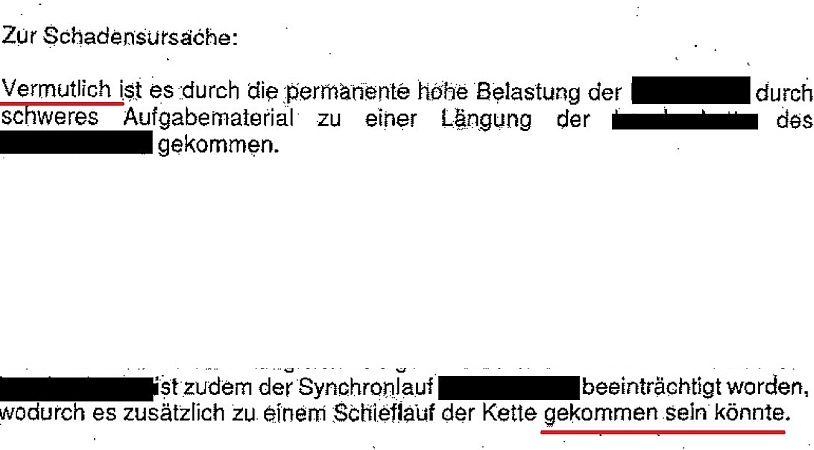
Figure 2: Extract from the “Technical Report” as the basis for an “Independent Evidence Procedure”.
If you are presented with a report like the one shown in excerpts in Figure 2, there may be lawyers who are happy about it and thus initiate a lawsuit or an independent evidentiary process.
The experienced technical expert, however, reads it like this:
There is talk of a cause of damage. In fact, the subjunctive is used twice in the central points. It is therefore clear from this document alone that it is not a cause of damage, but a technical hypothesis of the author of the report/expertise.
However, similar to legal problems in case law, the hypothesis must be technically proven in order for it to be a technical cause of damage.
On this basis, I would act as the client’s party expert
never advise a lawsuit or an independent evidentiary process.
If possible, I would recommend examining the matter in more detail from a technical point of view in order to substantiate the whole thing, if it is technically possible at all.
In fact, the party went to court based on the wording in Figure 2. Figure 3 shows an excerpt from the questions of the evidentiary decision in an independent evidentiary procedure .
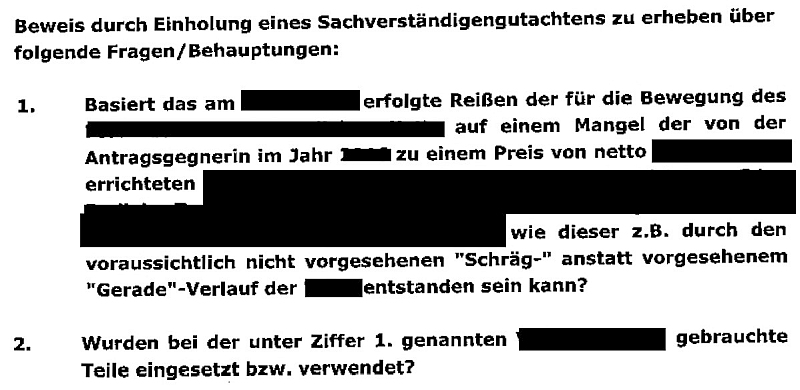
Figure 3: Extract from the court order of evidence.
Lawyers often tend to apply to the competent court for an independent evidentiary procedure in accordance with Sections 485 ff. ZPO. This usually leads to the so-called “applicant” requesting an assessment by a court expert in order to “determine either the condition of a person or the condition or value of an item or the cause of personal injury, property damage or material defect or the expense for to determine the elimination of personal injury, property damage or material defects.
If, as an expert, you see components that have been removed after a repair has been carried out, as shown in Figure 2, then you cannot determine anything with certainty.
Of course, general statements are possible, such as that there was significant wear and tear and subsequent technical damage. However, what was ultimately responsible in this case can of course no longer be technically proven based on individual components that were randomly stored and removed after a repair had been carried out.
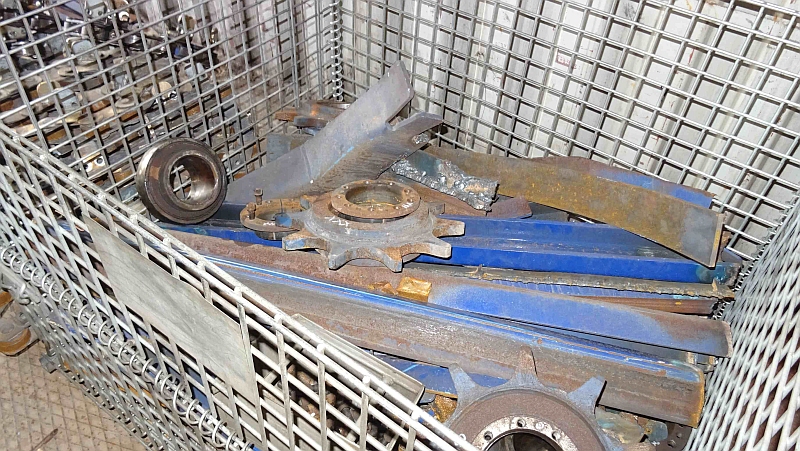
Image 2: Components removed due to repairs that are necessary in the meantime.
Specifically, the repairs carried out in the meantime, because the machine of reality is of course needed, destroyed evidence. The technical report submitted with “assumptions” was not suitable for providing information about the actual cause.
This simple example shows that it makes a lot of sense to…
Before initiating an independent evidentiary procedure or a lawsuit, you should think about what can be proven.
By involving an experienced, publicly appointed and sworn expert who is familiar with both the technical topic and the legal environment, the questions in Figure 3 would certainly not have arisen.
What would have been my recommendation?
In principle, it is always good for the applying party in independent evidence proceedings to know “where” they actually stand. This also applies to a party who wants to file a lawsuit.
It is obvious that in case study 1 there were some deformations of the components. To put it bluntly and simply, that means: Something was technically wrong,
only what?
With the questions according to Figure 3, the applicant hoped that a forensic expert would find something useful by looking at deformed components that had been removed in the meantime, which could then later have been used against the respondent.
One thing to keep in mind is that the number of technical experts who can find the cause of the damage by looking at scrap after a repair is likely
go to zero. Otherwise, such “experts” would simply be clairvoyants.
Given the fact that operators who have a problem with a machine often have to start producing again quickly and are therefore interested in repairs being carried out quickly, in my opinion and experience there would only have been one option in this case:
the preservation of evidence on the technical problem by a professional expert who knows what is important in the event of a possible later legal dispute regarding his findings.
Based on these results, if there were actually usable technical results, a competent lawyer could then have considered how this could be addressed appropriately.
Case study 2
The operator had purchased several different machines. Since the machines were put into operation, there have been repeated technical problems with these machines. There were always standstills. The production goals were not achieved.
After some discussions between the customer and the manufacturer or supplier, it became clear that both parties would not be able to reach an agreement without further clarification.
The operator commissioned an expert report to preserve evidence.
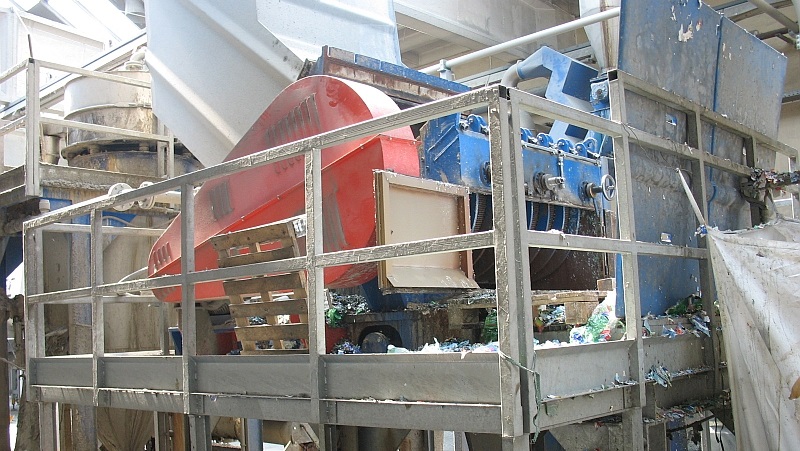
Figure 3: Error in a technical system with several linked machines.
It’s always similar: The operator claims that the technology supplied doesn’t work. The manufacturer claims that what was ordered was delivered and, in case of doubt, the operator’s employees are not competent enough to operate it.
Faults and defects in machinery and industrial equipment are ubiquitous in the world of mechanical engineering and are among the challenges that manufacturers and operators face on a regular basis. In such situations, fundamental questions arise:
What was contractually agreed, and what was actually delivered?
That’s why professional technical experts use a structured approach to first check the documents that represent the basis of the order and thus the delivery. Basically you can say:
The more precisely an order is specified, the easier it is to detect technical errors.
The individual (reported) problems are then documented. It must be checked whether these are reproducible and, if possible, what the cause is. It is particularly important that the error is reproducible. Even with a very detailed party report, one must usually assume that the parties will meet in court. Then the court – one way or another – appoints a judicial expert to review the evidence decision. That is why it is so important that, if possible, only questions of a technical nature are included in the evidentiary decision that a court expert can also examine for the benefit of the party for whom you are working as a party expert.
Only when a party report is available, as in the present case, can the experts and decision-makers on the client’s side, the party expert as author and the lawyer determine the next steps.
Only if you know where
the strengths and the weaknesses
your own party can lie in the legal dispute
proceed in a targeted manner.
There is no point in discussing issues and arguing them in court if you are not sure about them. This can lead to you getting caught up in endless pleadings on a purely legal level, with such legal disputes seemingly never ending and lasting for years. This is annoying for everyone involved.
The crucial aspects in technical legal disputes
In order to avoid losing a legal dispute as a mechanical engineering company, it is important at the decision-making level of the relevant mechanical engineering company or manufacturing company or commercial enterprise
get professional advice .
This means that a team of experts consisting of:
- technical experts and
- lawyers
accompany a case together at an early stage.
You should always be clear about what you actually ordered. Lack of clarity on this point often leads to legal disputes.
If the case is “clear” internally, the next steps can be defined as part of the technical-legal strategic planning.
That can mean that
- the lawsuit is initiated because it is believed that the mechanical engineering lawsuit can be won;
- As a defendant, you defend yourself against the lawsuit because you are very sure that you are well positioned.
- If the internal clarification shows that you are not in a good position after all, you will at least know that a good settlement can very likely be better than losing a legal dispute.
My recommendations
Since I was publicly appointed and sworn in as an expert in 2002, I have experienced numerous legal disputes on behalf of the courts. I also worked alongside parties as their party expert in many matters.
Success or failure depends
predominantly depends on the people involved.
You have to keep in mind that it can also be a success to have recognized in good time that your own position is not really well positioned. Then there must be negotiations with the aim of getting the best possible outcome from the matter.
I therefore always recommend based on my experience, but without claiming that it has to be seen this way in general:
- The risk of legal disputes in mechanical engineering is reduced through detailed planning of the requirements and the associated purchase of machines if a structured approach is taken here.
- In many cases, solutions that seem cheap at first glance turn into a boomerang with high additional costs and time expenditure. The supposedly cheap purchase can turn out to be an expensive affair in the long run.
- Personally, as a party expert on the side of a party, I am not a fan of the judicial independent evidentiary process. If you know where you stand technically, it can be examined legally. Then, in my opinion, there are two options: either go to court immediately or go into negotiations for a “good solution”.
- The independent evidentiary procedure seems to me to be a quick matter. For legal experts, the process is similar to that of a lawsuit. This means that in reality the process from submitting the application to the result is no quicker than with a lawsuit.
- It is often important for companies to be able to use the machine or system again quickly after a problem occurs. In reality, you cannot wait until an expert comes to an on-site visit in the independent evidentiary process to carry out a repair.
That’s why it always makes sense to first carry out a very detailed assessment of evidence by a professional expert with court experience, usually a publicly appointed and sworn expert.
Although this is only a party report, it can be used very well to guide the court expert who will certainly “come” in a legal dispute in mechanical engineering.
- Legal disputes in mechanical engineering take time and are also cost-intensive due to the generally high amounts in dispute. That’s why, as the management of a manufacturing company or mechanical engineering company, you always have to think about whether you necessarily want to tie up internal capacities for the necessary support of the legal dispute over a longer period of time or whether you are aiming for a good settlement solution.
- Before you file a lawsuit, you should know exactly where you stand technically and therefore legally. This means that you need the expertise of experts from different disciplines (technical experts and lawyers) who have to work closely with each other so that success can be achieved in the end.
- If you complain, the processes are similar. Here too, the team of experts is of fundamental importance.
Management must be clear about one thing:
Anyone who wants to work with experts because they want to achieve an important goal as best as possible must know that experts come at a price.
If you as a company win a legal dispute or if you settle “good”, it is worth it.
Real residual risks in a “mechanical engineering litigation”
However, you always have to consider real risks.
When it comes to litigation, you never know how committed the court will be. Frequently changing judges can be a problem.
Likewise, judicial experts who provide a court report on behalf of the court can become a problem if they present “findings” that are not certain or even inaccurate.
Unfortunately, this happens quite often.
In this case too, it is important to have technical and legal expertise on your side in a legal dispute.
Lawyers for litigation in mechanical engineering
I have worked with several attorneys as a party expert on the side of mutual clients. In almost all cases, these lawyers acted as sole clerks. It has therefore been shown that the efficiency of processing is independent of the size of the law firm from which the lawyer comes.
However, it is important to note that top-notch attorneys do not operate solely on RVG fees, especially at large law firms with multiple locations. In view of the usually high amounts involved in legal disputes in mechanical engineering, I believe it is essential not to save money at the wrong end. Good lawyers are just as important as professional experts in achieving ambitious goals.
If desired, I can recommend some extremely competent lawyers who are located throughout the Federal Republic of Germany. And by the way: With each of these recommendations, I would sincerely look forward to the possibility of working together again in the future with the “recommendation” in an exciting case in the field of mechanical engineering, machines and systems.
Conclusion and final thoughts
Dealing with technical legal disputes in mechanical engineering requires a professional approach that is made possible by integrating technical expertise and legal expertise. Companies can successfully navigate these challenges by acting early, engaging the right technical experts and lawyers early on, ensuring careful preparation. I recommend, always
an expert team of technical experts with judicial experience and professional lawyers,
if you as a commercial company want to be very well positioned in important disputes in mechanical engineering.
Collaboration between internal experts, external experts with court experience and lawyers plays a crucial role in achieving optimal results.
What is crucial is that you internally
Knows your own strengths and weaknesses very well with regard to the specific legal dispute.
The knowledge gained from the detailed internal examination of the matter by technical experts and lawyers is used as necessary
technical-legal strategic planning
implemented in the next step as a building block for success.
Through the strategies and tactics presented in this article, engineering companies can maximize their chances of a successful outcome in such legal disputes and emerge stronger from these disputes.
It is crucial that companies are aware that they are not alone and can count on the support of experts to strengthen their position and successfully conclude the mechanical engineering litigation. This article is intended to encourage you to approach technical litigation in mechanical engineering with confidence and to successfully manage them using the recommendations presented.

